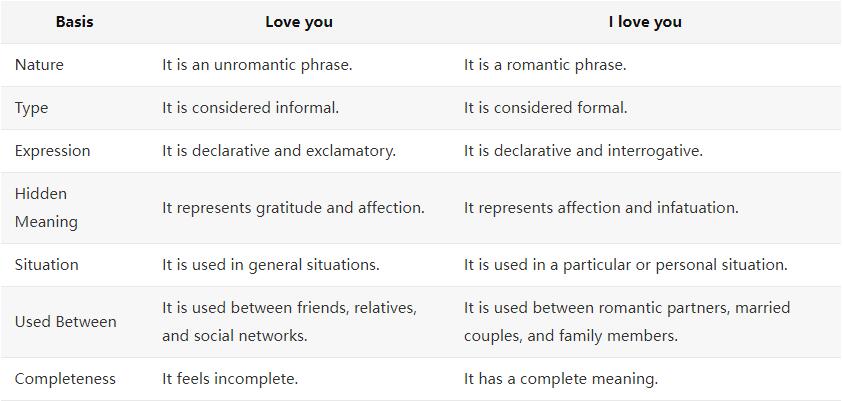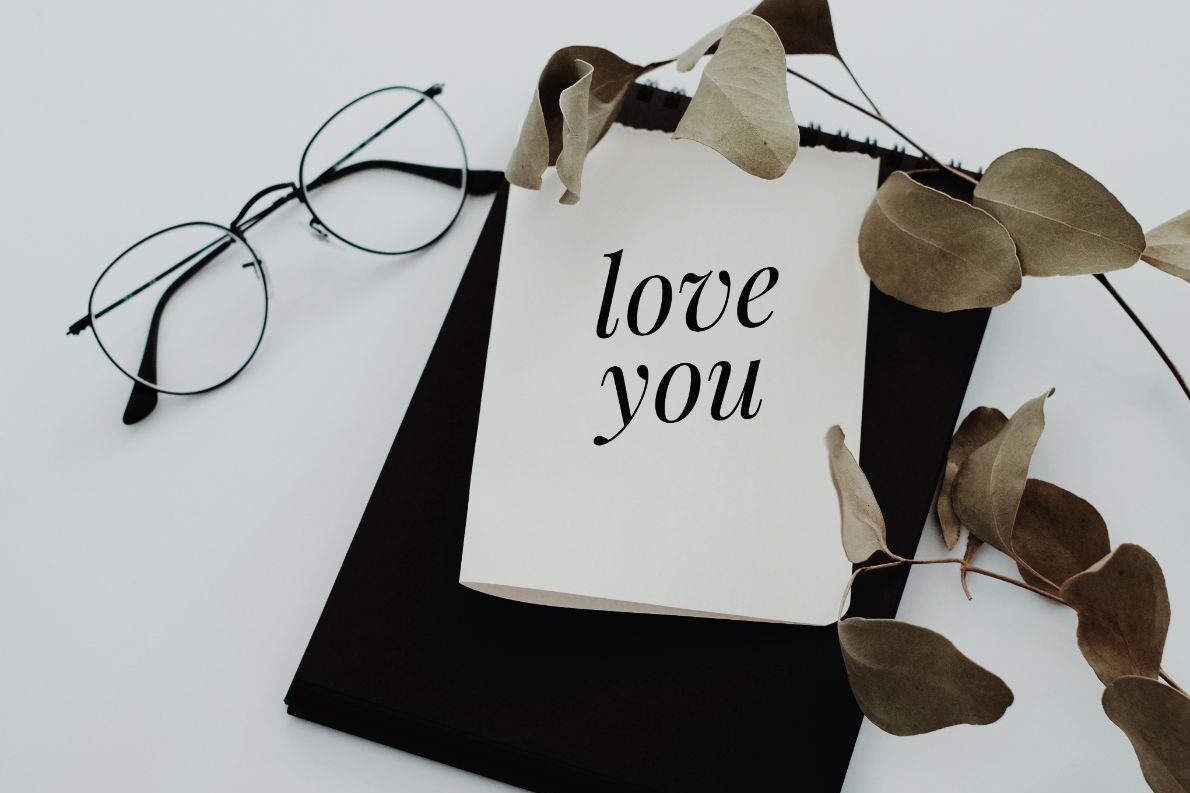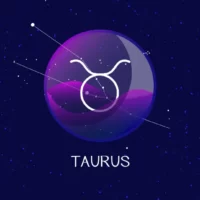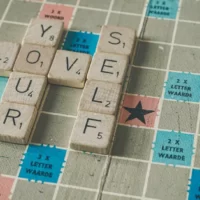We will discuss the differences between “love you” and “I love you” in a relationship.
The expressions “I love you” and “love you” imply an emotional bond with the subject, who may also be a pet, object, or food in some cases.
The difference between saying “love you” and “I love you” can completely change the meaning of a sentence. By looking at these phrases, the difference between I love you and love you is the difference between “I”. The former, however, is actually only for those with whom you have the strongest bonds.
I Love You
Saying “I love you” to someone you love is a common way to express how important they are to you emotionally. You say this to your significant others, family, close friends, and other members of the community.
Most of the time, when someone says “I love you,” they are hoping to begin a long-lasting relationship. It is also used occasionally to show love for someone or something, such as your parents, siblings, or even pets.
Love You
Love you is a more casual and informal way of saying “I love you,” but it is frequently used among friends to express appreciation or even affection without having a romantic connotation.
If you were comforted, you might tell your girlfriends, “Love you,” or something similar. However, people should exercise caution when using this expression because it might mislead someone who has feelings for the person using it.
Differences Between I Love You and Love You
The words “I love you” and “Love you,” while both having the same dictionary definition, have completely different connotations. The expression “love you” is frequently used to show appreciation and love to friends, cousins, family members, and other people.
Contrary to this, you can only say I love you to someone to whom you have strong emotional ties and deep feelings, such as your parents, life partner, best friend, or girlfriend/boyfriend.

How to Say “I Love You”?
It’s a big deal to say, “I love you.”
It can be challenging to know when the right moment is to utter the phrase because it is loaded with emotion. When you’re not sure how and when to say it or what the distinction is between “I love you” and “love you,” here’s a breakdown:
Saying “I love you” means that you’re conveying your feelings for the other person and telling them that you want to be in a relationship with them. “Love you” is more like a declaration of appreciation and fondness.
Typically, it is employed when you want to express your affection or when you are feeling grateful for the other person. So, if you’re not quite ready to say “I love you,” saying “love you” is still a great way to let the other person know that you care about them.
How to Say “Love You”?
Saying “I love you” is a pretty big deal. It’s a declaration of your feelings for someone, so make sure you do it sincerely and with intention. There are alternative ways to express your love if you’re not ready to say those three simple words.
You can say, “I adore you,” “I’m so grateful for you,” or “I love you.” These expressions all convey the same message, which is your sincere concern for the person you are speaking to.

There are many ways to express love, so find the words that come naturally to you and use them to communicate your feelings to your partner.
What Can I Say Instead of I Love You?
Love is a sentiment that is always in style. Adoration is expressed by saying the words “I love you.” Yet occasionally it might appear uninteresting and generic. Below, we’ve provided a number of substitutions you can use to truly impress your partner with your love.
- I am in love with you
- You complete me.
- You’re my heart.
- I believe in you.
- You’re the reason I’m content.
- You make me blush.
- I crave for you.
- I value you.
- I appreciate you so much.
Conclusion: When to Use the Love You Vs. I Love You?
Saying “love you” is a way to show how much you care about someone, and it can be said to anyone – friends, family, and romantic partners. Saying “I love you” is a declaration of love, and it should be reserved for those who are very important to you. When to express your feelings for someone, there is no right or wrong time.
Always be casual when saying “I love you,” and only say it after you’ve given it your all.
















